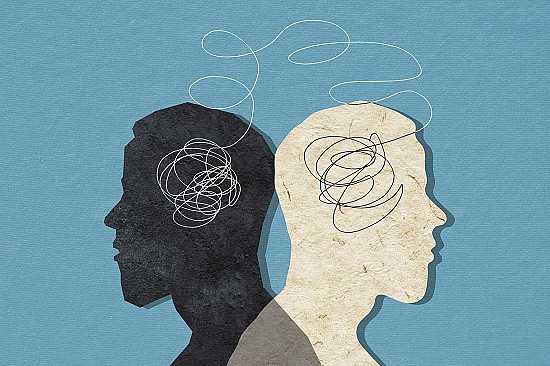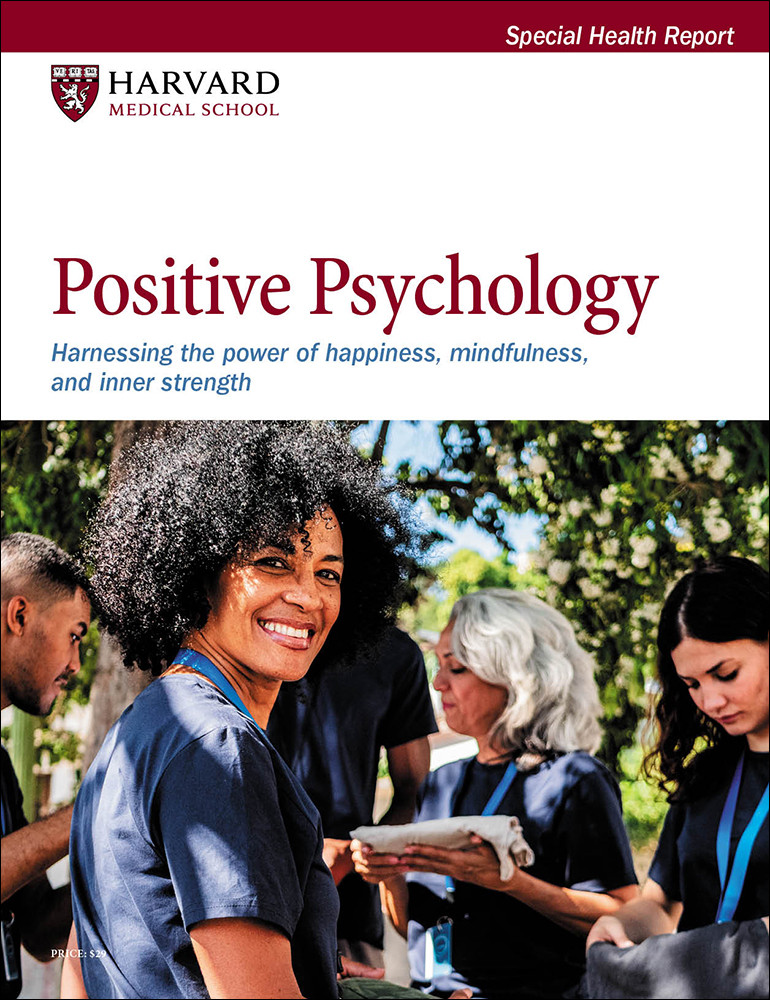A life-changing detour
You can support your partner after a difficult diagnosis in important ways, emotionally and practically.
- Reviewed by Toni Golen, MD, Editor in Chief, Harvard Women's Health Watch; Editorial Advisory Board Member, Harvard Health Publishing; Contributor

Armed with inborn optimism, Carolyn is accustomed to countering her husband William's slightly more negative mindset. But the Massachusetts resident's sunnier approach became especially valuable after William was diagnosed with lymphoma.
Spotlighting the "in sickness and in health" passage from their wedding vows, the illness has required the longtime married couple to navigate tenuous terrain that includes frequent medical appointments, evolving treatments, and days when William just plain feels awful.
"I'm cup-half-full and he's cup-half-empty, but it's always been like that," says the mental health professional, who, like her husband, is in her 70s. (We've changed their names for privacy.) "Keeping him positive is a challenge, especially when he's feeling terrible and can't eat, has no energy, and wants to sleep all the time. But I'm always looking for the positive, and he's grateful."
Coping style is crucial
About 60% of American adults are already coping with at least one chronic condition — such as cancer, heart or kidney failure, Parkinson's disease, or Alzheimer's disease, among others. And millions of couples face a serious new diagnosis each year, says Dr. Suzanne Salamon, clinical chief of gerontology at Harvard-affiliated Beth Israel Deaconess Medical Center. But determining how to best support your partner after such a diagnosis can prove just as unmooring as the health crisis itself.
"There's not just one right way to do this," Dr. Salamon says. "Everyone handles it differently."
Research underscores how fundamental a couple's relationship is to their ability to endure one partner's daunting diagnosis. A 2021 review published in Frontiers in Psychology tapped 30 years of research on more than 2,800 couples affected by severe physical illnesses. It highlighted how so-called dyadic coping — how partners communicate and support each other through adversity — is a dynamic process where one partner's ability to cope depends, at least in part, on the other's.
To that end, Dr. Salamon suggests making frank but reassuring statements in the hours and days after the diagnosis — even while giving space to let the news sink in.
"Tell them, 'I want us to be on the same page, have the same goals, and be able to be there for each other,'" Dr. Salamon says. "It can be really tough, because one day they may feel they can manage, and the next day they may be terrified."
Supportive strategies
Carolyn and Dr. Salamon also recommend these ways to support your partner.
Maintain routines. If Saturdays have always been movie night, keep the tradition going. "Having life go on normally as much as possible is definitely helpful when it feels like the world has just turned upside down," Dr. Salamon says.
Get informed. Your partner's primary care doctor can be a rich source of information about the diagnosis and connect you with specialists who may shed light on the latest treatments, Dr. Salamon says. You can also visit reputable websites, such as those of the CDC (www.cdc.gov) or National Institutes of Health (www.nih.gov).
Attend doctor's visits. Don't stay in the waiting room. Ask questions during appointments, and write down responses. "I've kept running notes on everything to sort things out, both for us and the doctors," Carolyn says. "It's been helpful to be able to look back on them."
Tweak your home. Install grab bars in bathrooms, and obtain assistive devices such as a walker or wheelchair to lighten your caregiving load. "Your partner may be adamant they don't need the help, but tell them you're just giving this a try," Dr. Salamon says.
Get affairs in order. Even if you're expecting your partner to fully recover, you should plan for the worst, Dr. Salamon says. Smooth the path forward by updating documents such as power of attorney, medical proxy, and wills.
Seek and accept help. Ask a social worker or your local Agency on Aging to steer you toward in-home services. And if loved ones ask what you need, don't balk. "I'm used to being able to do everything, so it's hard to let others help," Carolyn says. "But even if someone visits with your partner while you go out for a walk, those sorts of things help too."
Take time for yourself. Whether it's a mani-pedi, solo weekend, or some other form of respite, self-care is essential when so much focus is on your partner's needs. "My gardening helps," Carolyn says. "It's what I do to clear my head. And I always make sure I have some kind of flowers in the house to perk us up."
Image: © SDI Productions/Getty Images
About the Author

Maureen Salamon, Executive Editor, Harvard Women's Health Watch
About the Reviewer

Toni Golen, MD, Editor in Chief, Harvard Women's Health Watch; Editorial Advisory Board Member, Harvard Health Publishing; Contributor
Disclaimer:
As a service to our readers, Harvard Health Publishing provides access to our library of archived content. Please note the date of last review or update on all articles.
No content on this site, regardless of date, should ever be used as a substitute for direct medical advice from your doctor or other qualified clinician.
















